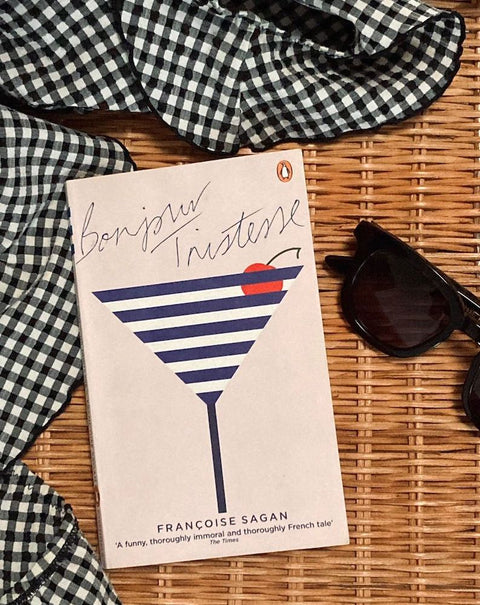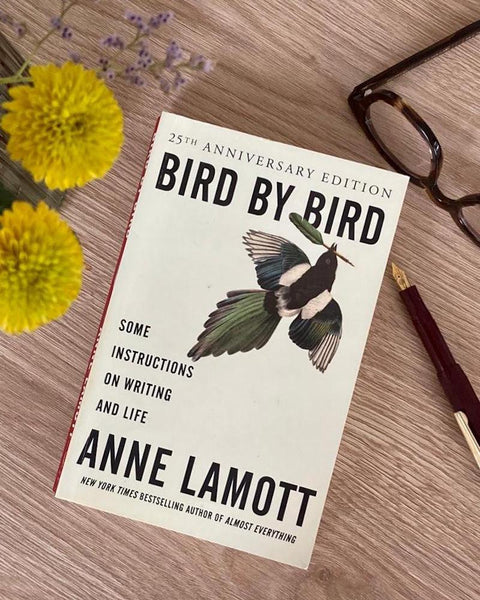Read this if you:
- enjoy daydreaming about living on the Côte d'Azur surrounded by attractive people
- are a bit of a rebel and enjoy defying society’s conventions and the expectations of others
- are a francophile and adore the way the French make a philosophical problem out of everything
- are not taking your yearly holiday until autumn and you are desperately looking for a hot getaway (both literally & figuratively)
The French Riviera: The world of beautiful bronzed people
Bonjour Tristesse is a favorite among teenagers and young adults – especially women with a particular obsession with France, like yours truly – because of the narrator and protagonist of the novella, Cécile. Young, gorgeous, confident, and out for a good time, Cécile embodies the freedom and carelessness of youth. She is outspoken and full of life and her aim is to enjoy all the pleasures her world has to offer. She rebels against convention, having inherited a distaste for marriage from her widowed father, and instead pursues her liberté with great abandon.
“This conception of rapid, violent, and passing love affairs appealed to my imagination. I was not at the age when fidelity is attractive. I knew very little about love”
Cécile and her father Raymond are vacationing on the Côte d'Azur with Raymond’s girl of the moment, Elsa. Cécile meets Cyril, a young law student who is also vacationing with his family, and they begin a summer romance. They swim, they sail, they drink and stay out late, they eat good food and make love. Everyone is enjoying themselves immensely, until Anne Larsen, an old friend of Cécile’s mother, arrives to stay with them.
Though Cécile likes Anne, she stands for everything that Cécile is trying to avoid: Anne is stuffy, intellectual, boring, overly proper, and correct. Soon it is announced that Anne and Raymond will marry, and Cécile quickly realizes that this means her entire life – her wild, free ways – are about to change. And Cécile won’t stand for it, so she begins plotting Anne and Raymond’s separation.
“At all costs, I must take steps to regain my father and our former life”
Cécile rebels and the reader is on her side. Though we might see the value in what Anne prescribing – reading philosophy and earning her baccalauréat – we believe in her autonomy and her sexual liberty, enough to support Cécile’s plot of driving a wedge between Anne and Raymond by using Elsa to make Raymond jealous and unfaithful. All the while Cécile protests Anne’s efforts by eating less, by pretending to read and study in her room.
In a twist of irony, Cécile does shed a part of her self-described shallowness and hedonism in the process, but not in the way that Anne wanted. In the process of creating a jealousy plot between Anne and her father, Cécile develops masterful observation skills. Her entire plan rests on her ability to correctly analyze the motivations, fears, and desires of all people involved. Cécile transforms from her carefree self into something more introspective and quiet and becomes more intelligent along the way. She’s the mastermind of this nasty plan, and Cyril and Elsa look to her for instructions on what to do. She manipulates her father – betting on the flaws of his pride and personality – and e wins. Though Cécile is reluctant at times when her conscience tells her she’s hurting Anne, she continues anyway to regain her old life at all costs.
Adieu tristesse, Bonjour tristesse
In the end, Cécile gets what she wants, but not in the way she had hoped. Though we’re led to believe that Cécile regrets what she has done to Anne, that her tristesse, which she greets at the end of the novel, is sincere, after only a brief time Cécile and Raymond return to their old ways. All illusions are shattered: Cécile realizes she never loved Cyril, almost as rapidly as she was ready to tell him she loved him. She returns to Paris with her father, where they both mingle in society, carrying on their frivolous and shallow relationships with people that they pursue for their beauty and entertainment, and nothing else. Even Cécile’s mourning appears studied, something she feels like she has to do to keep up appearances, because she should feel bad, not because she does feel bad.
Are her struggles any less important? Not at all. There’s a certain melancholy that comes with the end of summer, the end of relationships, and, most poignantly, the end of youth, the journey that Cécile, now eighteen, has just embarked on. Though we can’t forgive her for what she has done to Anne, we can most definitely forgive her for wanting to live life on her own terms.
With love, to you - Sophia



